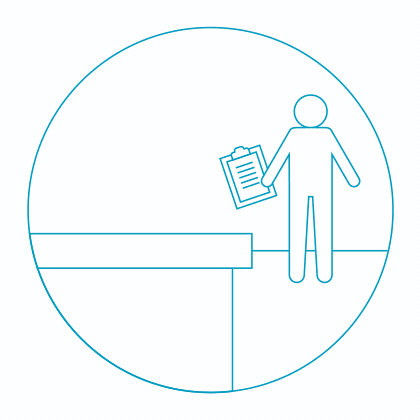By The Numbers
Introduction
Touchstone Institute provides learning programs for international medical graduates (IMGs) and visa trainees who have been matched or accepted into medical training in Ontario.
Curriculum, orientation, supports, and services are offered to prepare learners from various training backgrounds for a successful transition into residency training through competency-based programs.
Whether courses refresh IMGs' understanding or address new competencies, our Ontario-specific programming ensures that learners are provided the foundational experience, exposure, and opportunity to practice the competencies necessary for successful training in Ontario.
Our Programs
Our learning programs are separated into three streams to help meet the needs of all IMGs and visa trainees transitioning to training in Ontario.
The three streams of programming are specifically designed for all international medical graduates, including Canadians educated abroad, who have successfully matched to a training position in Ontario, or those who have attained a position to further their training as a visa trainee or clinical fellow.
How It Works
Mixed Modality Learning
Our learning programs utilize a multitude of learning modalities to address learning types and needs, while maximizing time and resources to best prepare our learners.
Developed and delivered by physician faculty, didactic lectures help ensure learners are familiar with foundational concepts and theory prior to practice. Didactic lectures facilitate robust engagement and discussion and allow faculty to offer tailored learning experiences that leverage the knowledge of the learners while addressing the learning outcomes of the session.
Clinical simulation provides learners with the opportunity to apply course content in a formative and interactive environment. Simulated clinical encounters ensure that learners are able to put theory into practice while receiving feedback and direction.
The Online Learning Management System (LMS) includes all session slides, tip-sheets, and session-specific resources.
The LMS also includes interactive modules which complement didactic sessions to provide orientation to foundational topics.
To help support a learner’s transition into training, our programs offer individualized mentorship upon request. Confidential consultations with mentors may include generalized discussion on practice in Ontario, recommendations, and supports that will assist learners in future training.

Program Benefits
Touchstone Institute is committed to meeting learners’ needs through continuous review, renewal, and enhancement of our program offerings. Collecting and applying feedback from our stakeholders is a pillar in our work. We take great care to develop and renew our curricula to ensure we meet the evolving needs and expectations of our stakeholders and learners.
Our Learning Programs are developed and delivered with expertise, adhering to the principles of competency-based medical education. Curriculum is rooted in the CanMEDS 2015 and CanMEDS-FM 2017 frameworks, and addresses competencies specified by the Transition to Discipline and Foundations of Discipline stages in the CBD Competence Continuum.
All sessions are developed and delivered by practicing physicians and healthcare professionals who understand learners' unique needs and are considered to be subject matter experts in their field.
Touchstone Institute facilitates quarterly meetings with a dedicated Curricular Advisory Committee which includes physicians representing a range of specialties, medical schools, training experience, and experience working with IMGs & visa trainees. The Curricular Advisory Committee works to ensure that all content and modalities include a breadth of experience and represent diverse needs.
Touchstone Institute regularly evaluates our learning programs to understand our learners’ needs and further program development. During and after each academic cycle, we collect and analyze anonymized learner feedback on the overall program, didactic sessions, simulation, online modules and individual lecturers. Data is used to inform planning and decision making for our Curricular Advisory Committee.
Touchstone Institute embarks on an annual tour of the province to meet with key members of the postgraduate medical education (PGME) offices in Ontario. This critical consultation process ensures that we continue to understand and address the localized needs of medical schools.
In addition to our PGME tour, we host a bi-annual Family Medicine Programs Meeting, inclusive of Program Directors and IMG Coordinators, to coordinate programming and ensure that FM trainees across the province have an equitable Phase 1 and Phase 2 experience.